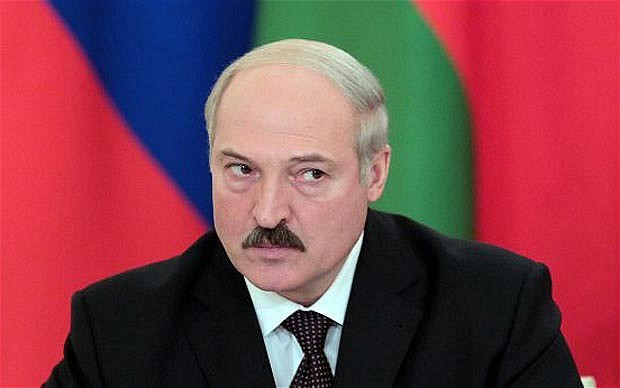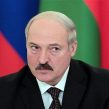
Will Alyaksandr Lukashenka Outlast Leonid Brezhnev?
Publication: Eurasia Daily Monitor Volume: 10 Issue: 103
By:

Justas Paleckis, the European Parliament’s rapporteur on Belarus, issued his Draft Recommendation to the Council, the Commission, and the European External Action Service (https://www.europarl.europa.eu/sides/getDoc.do?pubRef=-//EP//NONSGML+COMPARL+PE-506.234+01+DOC+PDF+V0//EN&language=EN). The document reiterates “the need for the unconditional and immediate release and rehabilitation of the political and civic rights of all remaining political prisoners to be a prerequisite for a gradual lifting of [the European Union’s] restrictive measures and for a substantial upgrade in EU-Belarus relations.” But in addition, Paleckis’ report envisions using Lithuania’s rotating presidency of the EU Council of Ministers (scheduled for July–December 2013) and the upcoming November 2013 Eastern Partnership (EaP) summit as unique opportunities to improve relations with Belarus. It also suggests increasing the share of EU-Belarus “projects with greater benefit to and visibility for the population at large.”
The Paleckis report further asserts that in 2012, an “improvement of the situation of human rights” in Belarus was “discernible.” Consequently, the document suggested that Brussels “consider the suspension of key [Belarusian] officials from the EU visa ban list with a view to broadening the main and essential diplomatic communication channel with Belarus, [and] also in view of the Eastern Partnership summit”
While geopolitical concerns of the EU are not explicit in Paleckis’ report, they may have been its major driving force. Interviewed by the independent Russian news agency Interfax, Yury Shevtsov, a Minsk-based political pundit, stated that the progress of Eurasian integration around Russia alarms some European countries and so “the instruments of the EaP have been chosen to counteract the process of Eurasian integration.” However, Shevtsov believes that the EU’s “demand for the release of political prisoners is serious and is impossible to sidestep” if Belarus wants to improve its relations with Europe (www.interfax.by/news/belarus/130368).
The geopolitical theme is also imprinted in the very name of a German Marshall Fund–sponsored conference conducted in Tallinn, Estonia, on May 23–24, titled, “The Eurasian challenge to the European prospect for Belarus.” The conference’s most publicized presentation, that by Yury Drakakhrust of the Belarusian Service of Radio Liberty (BSRL), was devoted to the 2015 presidential elections in Belarus and to what the Belarusian opposition could achieve during the electoral campaign. According to Drakakhrust, the best scenario for the opposition would be to consolidate and select a single leader who could be favored by at least 10 percent of eligible voters and who could maintain that rating for a considerable amount of time. Drakakhrust thinks that “Lukashenka does not reckon with the minority that is not in agreement with him—not just because of his character but also because he does not [identify] a serious spokesman for that minority.” Drakakhrust recalls that after the 2001 and 2006 elections, the opposition squandered its political capital by turning away from its most tested leaders. Thus, in 2001, Vladimir Goncharik, who received 15 percent of the vote, was denied a political future. Likewise, much was done in 2006 and thereafter to discredit Alyaksandr Milinkevich. If the opposition draws lessons from those experiences it will still lose the elections but it will not lose in vain, believes Drakakhrust (www.svaboda.org/content/article/24995259.html?).
Still another reputable commentator, Alexander Klaskovsky, sees the weakness of the opposition as a key motive behind the EU’s attempts to restart its dialogue with the government in Minsk. Interviewed by Klaskovsky, Valer Karbalevich of the BSRL invoked the efforts of Belarusian diplomacy as a factor of potential reconciliation. In this regard it is noteworthy that Belarusian Foreign Minister Vladimir Makei received an invitation to the meeting of the EaP countries’ foreign ministers in Krakow, Poland (May 17–18), but sent his deputy Elena Kupchyna instead. Interpreting this de facto demarche, some commentators agree that it fits President Alyaksandr Lukashenka’s signature style of finishing off the weak (https://naviny.by/rubrics/eu/2013/05/21/ic_articles_627_181831/). Sensing that the EU caved in, he would like to exact from it more significant concessions. Those might be not just a one-time invitation for Makei, but a removal of him from the EU visa ban list and, above all, a personal invitation for the Belarusian president to the November EaP summit in Vilnius.
Additional indications also suggest that Lukashenka may now be acting from a position of strength. For example, on May 24, the US State Department removed its sanctions against Beltechexport. They were imposed on July 14, 2010 for that company’s alleged dealings with Iran, North Korea and Syria; in May 2011, sanctions were extended. But following an April 4 meeting of some Beltechexport representatives with Ralph Palmiero, a State Department official, the sanctions were lifted. While there are still Belarusian companies under US sanctions (https://www.treasury.gov/resource-center/sanctions/Programs/pages/belarus.aspx), their selective lifting may now be a signal to Europe.
In a different vein but still indicative of Lukashenka’s perceived strength, a 2010 presidential hopeful, Yaroslav Romanchuk published a futurological account—“Lukashenka-2033: How can this happen?” (https://naviny.by/rubrics/opinion/2013/05/22/ic_articles_410_181839/). In it, Romanchuk discerns a possibility for President Lukashenka to still preside over Belarus as an 80-year-old man, that is, older than Leonid Brezhnev, who died at the age of 76 while still in power. Romanchuk believes that for Lukashenka to remain in power until 2033, ten important actors would need to operate concertedly, even if only by accident. These are Igor Sechin, who presides over Rosneft, the world’s major oil company, and who can guarantee Belarus lasting and ample duty-free oil supplies in exchange for property; Suleiman Kerimov, who presides over Uralkalii, a potassium conglomerate and who can finance the second potassium enterprise in Belarus; Chinese investors; offshore bankers; the casino business, which has migrated from Russia; the Belarusian IT sector; Sergei Kiriyenko, who chairs Russian Rosatom, a nuclear energy administration; the Russian military lobby; selected European businesses; and new Belarusian oligarchs. Romanchuk describes each group’s vested interest in extending Lukashenka’s term in office. “Against the backdrop of a rebellious and decadent Europe, thievery in Russia, and chaos in Ukraine, Belarus will be the niche of stability and order at the center of Europe,” writes Romanchuk. “Life has proven that the realization of the most fantastic scenarios is possible, and there is a reason to take a close look at this one,” he concludes. Whether such a prediction comes to pass, however, will greatly depend on Lukashenka’s ability to navigate the geopolitical waters between Russia and Europe in the coming months and years.




